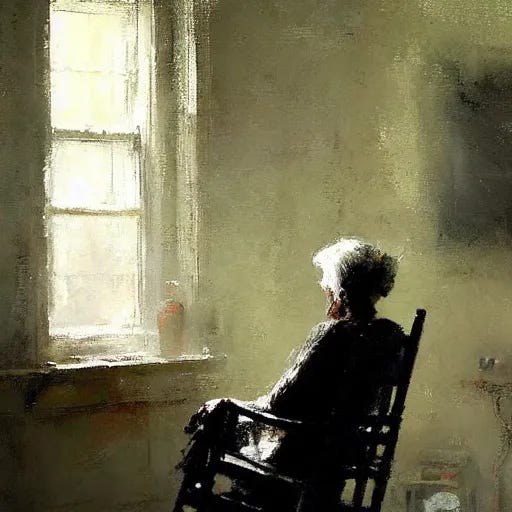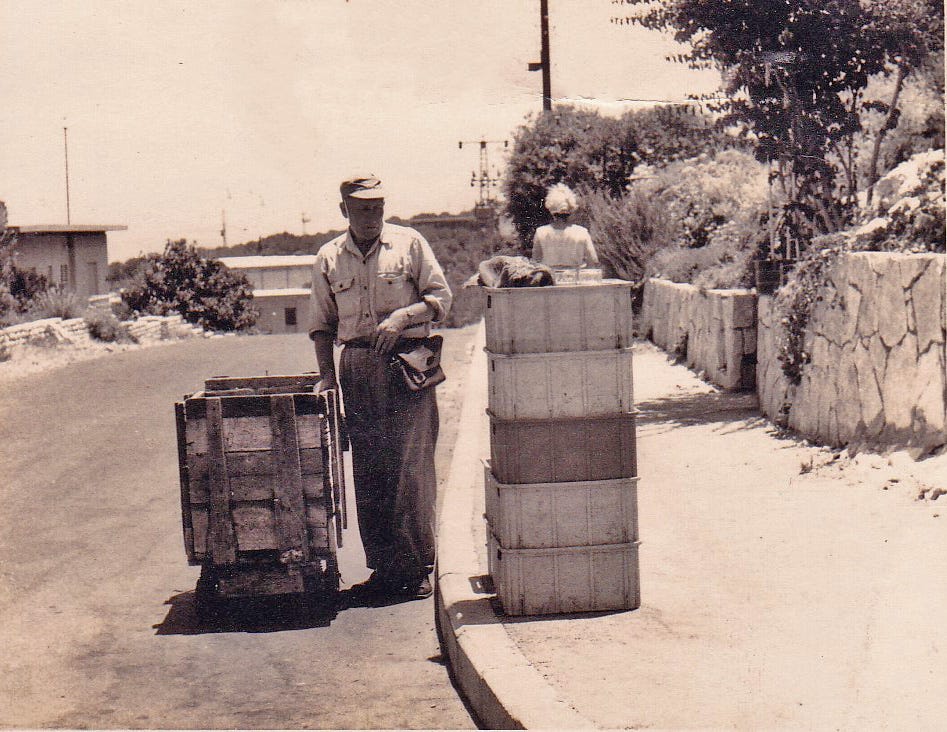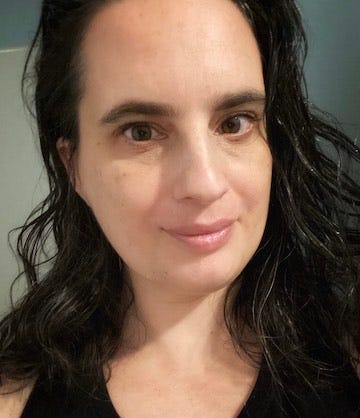I am crying as I place the last image on this feature: a picture of two white gloved hands holding up a child’s shoe to be photographed. I am so moved by these poems, by my own good fortune to work with poets like Wendy Wisner, who has so beautifully captured these days: days when everything we counted on as right and wrong, as good or bad are all confused and the lines between all blurred. Everything we had been raised to see no longer clear. Everything we had trusted now something else. Our very memories called up, laid out like a cobblestone street. We walk along the path of time it took our blood to form in the bodies of our grandparents, our parents, but our steps are no longer sure. We are tripping over the small shoes of children who came before us, those left behind but not forgotten, those that are worn innocently still today on small feet struggling to survive.
Grace Avenue
Teach me to trust the windswept trees:
forsythia erupting
against the bricks of our old apartment building—
my grandmother walking home under a rain
of dogwood petals.
Walk with my grandfather and me
as he teaches me the names of neighborhood trees:
weeping willow
sycamore
black walnut.
Come inside
my grandparents’ apartment
which smells like chicken soup and moth balls
always.
Find my grandmother
sitting by the window
in her wicker rocking chair,
the aqua blue telephone
against her cheek.
Those were the days all her friends were dying,
her body outliving theirs
but her brain beginning to die
so silently
we didn’t know.
Teach me to trust my mother as she cared for her own mother
as she cared for her daughters as she bought a gardenia plant
to the balcony of that apartment on Grace Avenue
and watered it until she forgot about it and it died.
Teach me to forget the future as I try to remember the past.
We don’t know what might happen to our brains
without water
without flowers
without mothers.Religion
Mom, I’m trying to remember if we lit Chanukah candles when we lived in California, away from your parents, away from religion. If I ask you, you won’t remember. I’m trying to recall what happened to that bike I had in Menlo Park, where I’d ride around the apartment complex with the other children at dusk, wind on my lips, fireflies pricking the air. Was the bike bruised and battered by the end? Did you give it away? I want to know your recipe for drumsticks. It was my favorite thing you cooked in the apartment on Lincoln Avenue. I’d sit at the kitchen table, sunlight burning the back of my neck. Do you remember the mint tree outside the kitchen window, how sometimes it would get so still in that apartment we could hear the leaves rustling? Maybe that was our religion. Mom, is that what you meant when you said you were happy once, in California, but then you needed to go back home? Did you find home again? Sometimes I could smell the mint as it slid through the window, as I waited for the drumsticks to be cooked.Tova, 1937, Kraków
Look at you, standing there on the cobbled street
peering into the camera, a small black book
in the crook of your arm.
How did you know it was time
to leave? How did you sense
the urgency? Everyone else stayed:
Leah David Miriam Moshe
Henoch Sara Yechiel Charna
Menachem Jacob Frida Kalman
Why were you the one
to leave? Was leaving in your blood,
just as it is in my father’s, in mine?
Did you know the Nazis were coming?
What force
what desire—
pulled your body
out of the country you called home
into the land where you’d raise my father
who sprouted inside you like a tumor
pressed his way into this world
with nothing
but a will to survive?Father as Sisyphus If you ask my father about his own father he’ll tell you he rose every morning at 3 a.m. in the pink murky light to push his milk truck up the Haifa hills and deliver cold fresh jugs of milk to each house’s front stoop. My father will tell you by the time he woke up his father’s whole day had already unfolded under the unrelenting Israeli sun as he pushed that milk truck up up up and you couldn’t talk to him or disturb him for the rest of the day. This is the story of my father’s childhood: milk truck steep hill burning heat blazing father. But my father will also tell another story: In 1979, we took a trip to Bear Mountain and my father told me the story of his life. It was the story of fleeing Poland just before the Nazis invaded, a harrowing journey through Greece and Cyprus toward Palestine— hiding, staying ahead of the Nazis at every turn. My father will tell the story as though the whole thing was an adventure and maybe it was but it didn’t help him forgive his father for leaving each morning to push that milk truck up those insufferable hills didn’t let him move past his father’s sweltering silence.
Each Small Shoe I ask my father if he had a bomb shelter growing up. There was an area beneath the apartment building where we hid during the 1967 war my father says. It wasn’t a bomb shelter, exactly, more like a place to hide. ✬ ✬ ✬ My father is five years old. It must have been the 1956 war, he tells me. It’s dusty and dark under the apartment building. Someone is holding his small body in their arms. ✬ ✬ ✬ All of my father’s childhood is marked by dates of war. ✬ ✬ ✬ Back then my father played with the children on the other side of the war. We were all poor. We walked around barefoot. Such dirty feet. Back then in Haifa where the sun sets pink as the inside of your mouth. ✬ ✬ ✬ After his cousin died in the war, my father lay in bed looking at the ceiling: a mirage of shapes like faces bleeding into each other— my father describes it. For weeks, he barely left his room, refused to speak a word. His parents brought him to the hospital, twice. They didn’t know what to do with me. ✬ ✬ ✬ Now when I see my dad, I ask him to tell stories. He tells the one about his affair with a young nurse at the psychiatric hospital. She had connections and could get me out of there, he says, pulling his chair closer, eyes sparkling like new pennies. We sat on the steps outside the building eating chocolate together planning my escape. ✬ ✬ ✬ After my father dropped out of high school he lived in Jerusalem. I had Israeli friends, Palestinian friends. It was different then. I remember standing in an alleyway in Jerusalem. A bomb went off. I guess that was the closest I ever got to harm. It was different then. I wasn’t afraid. ✬ ✬ ✬ My father never served in the army. His papers from the psychiatric hospital trembled on his knee as he sat in the recruitment office. My papers got me out, he tells me, but I would have found a way out anyway. ✬ ✬ ✬ My father left Israel in a rage at 24 years old, refused to return. ✬ ✬ ✬ What I’m not supposed to tell you: I am a Jew but I wasn’t raised to love Israel. ✬ ✬ ✬ What I’m not supposed to say: Israel saved us. If Tova— if Moshe— if neither of my grandparents had fled Poland for Palestine during the Holocaust— if neither of their bodies were housed in that tiny apartment in Haifa, Israel— there would be no father. No me. ✬ ✬ ✬ I can’t comprehend the deaths displacement the 12-year-old Gazan boy shot five times by the Israeli soldiers while he gathered food dropped by parachutes— can’t reconcile the atrocities carnage massacres that have happened in the name of this country which birthed my father from its cavernous mouth ✬ ✬ ✬ When I was a child, my parents could only afford one pair of shoes at at time, my father tells me. I picture my father’s childhood shoes, dirty, battered, sitting by the door of Tova and Moshe’s apartment, Israeli light bleeding through the screen door— I picture the mountains of children’s shoes preserved under glass at the Auschwitz museum— the 16,000 pairs of children’s shoes laid out in Schouwburgplein Square in Rotterdam, the Netherlands, each pair representing 16,000 children killed in Gaza by Israeli air strikes— each shoe a trace of a child each small shoe glowing like skin
Wendy Wisner is the author of three books of poems, most recently The New Life, published by Cornerstone Press (University of Wisconsin Stevens-Point) and named a finalist for the Foreword INDIES Book of the Year. Wendy’s poems and essays have appeared in Prairie Schooner, Spoon River Review, Passages North, THRUSH, Verse Daily, The Washington Post, Lilith Magazine, and elsewhere. Wendy is currently an Associate Editor at Rise Up Review. Find her at www.wendywisner.com












I too grew up in a family like that. My parents were pioneers in the 40s and helped to establish the Israeli airforce. My dad smuggled in and reassembled pieces of German planes and worked as a flight engineer. They met on a kibbutz and married in a group wedding.
After 7 years they left, never to return. The reasons have come home to roost at present.
Lovely portraiture and lyric narrative here. That a celebration of survival and culture can also be inclusive of that type of care for Palestinians is much appreciated.